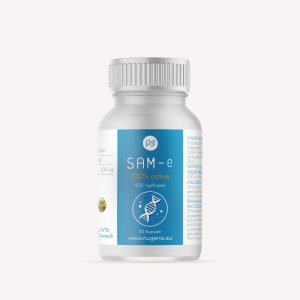
Epigenetics and the Endocannabinoid System: How Stress, Trauma, and Nutrition Rewrite Balance
Red Thread
Balance is the essence of life. The endocannabinoid system (ECS) is a master regulator of stress, mood, pain, and immunity — and epigenetics decides how sensitive or resilient this system becomes.
Case Vignette
A young man suffers from chronic anxiety and inflammatory bowel disease. His genetic tests show nothing remarkable, but his history tells the story: childhood trauma, poor diet, long-term stress. These experiences did not alter his DNA, but they left epigenetic scars on his endocannabinoid receptors and enzymes. His ECS now overreacts to stress signals and underperforms in inflammation control. With targeted nutrition, stress reduction, and phytocannabinoids, part of this epigenetic imbalance can be rewritten.
Main Text
1. The Architecture of the Endocannabinoid System
-
Endocannabinoids: Anandamide (AEA) and 2-AG, produced on demand.
-
Receptors: CB1 (brain, nervous system), CB2 (immune system, periphery).
-
Enzymes: FAAH and MAGL degrade endocannabinoids to maintain balance.
-
The ECS influences: pain perception, appetite, immune function, stress resilience, and memory.
2. Epigenetic Regulation of ECS Components
-
CB1 receptor gene (CNR1):
-
Hypermethylation → reduced receptor expression → higher stress vulnerability.
-
Found in PTSD patients with childhood trauma.
-
-
CB2 receptor gene (CNR2):
-
Methylation changes in immune cells alter inflammation response.
-
-
FAAH gene:
-
SNPs and methylation patterns affect enzyme activity, shaping anxiety and pain thresholds.
-
3. Stress, Trauma, and ECS Epigenetics
-
Early-life stress hypermethylates CB1 receptors in the amygdala → impaired fear extinction.
-
Chronic cortisol exposure suppresses ECS signaling via histone modifications.
-
Trauma survivors often show downregulated ECS tone, linked to depression and addiction risk.
4. Nutrition and Phytocannabinoids as Epigenetic Modulators
-
Omega-3 fatty acids: precursors for endocannabinoid synthesis; deficiency leaves epigenetic scars on ECS activity.
-
Polyphenols (curcumin, resveratrol): restore CB2 receptor balance epigenetically.
-
Phytocannabinoids (CBD, THC): modulate DNA methylation and histone acetylation, reversing stress-induced ECS silencing.
-
SAM-e: supports methylation reactions across ECS-related genes.
Info-Box — ECS in Disease Context
-
PTSD: CB1 hypermethylation impairs extinction of traumatic memories.
-
Chronic pain: altered histone acetylation in spinal neurons silences ECS pain-modulating genes.
-
Autoimmune diseases: CB2 methylation changes sustain inflammation.
-
Addiction: ECS dysregulation leaves methylation scars on reward circuits.
5. ECS as a Bridge Between Body and Mind
The ECS is unique because it integrates:
-
Brain (CB1): emotions, stress, memory.
-
Immune system (CB2): inflammation, infection control.
-
Gut: appetite, microbiome interactions.
-
Pain pathways: spinal and peripheral modulation.
Epigenetics weaves these domains together — shaping whether the ECS protects or fails.
Takeaways
-
The ECS is a central regulator of homeostasis; epigenetics determines its sensitivity.
-
Trauma, stress, and diet leave molecular scars on cannabinoid receptors and enzymes.
-
Nutrition, phytocannabinoids, and lifestyle can epigenetically re-balance ECS function.
-
The ECS is an epigenetic bridge between body, mind, and society.
Eduard Rappold
Note: This information is provided for educational purposes only and does not replace professional medical advice. Always consult qualified healthcare professionals for medical concerns.
Copyright © Eduard Rappold 2025
http://nugenis.eu/shop
NUGENIS specializes in epigenetically active nutritional supplements.

